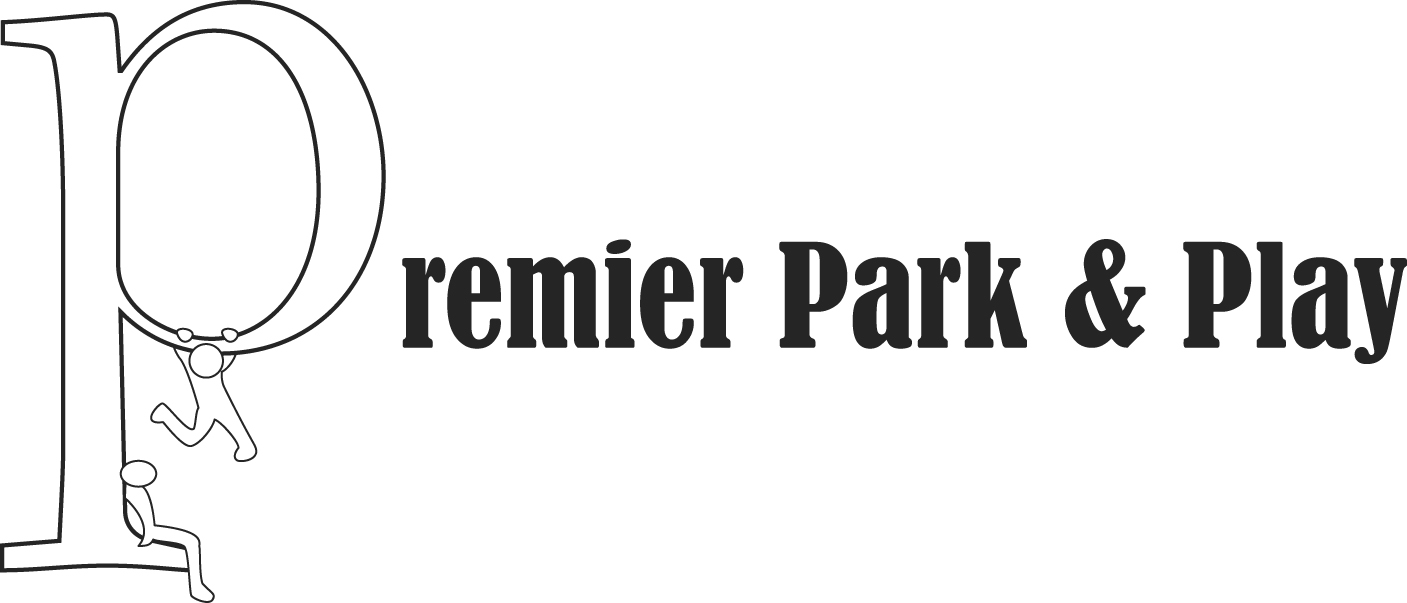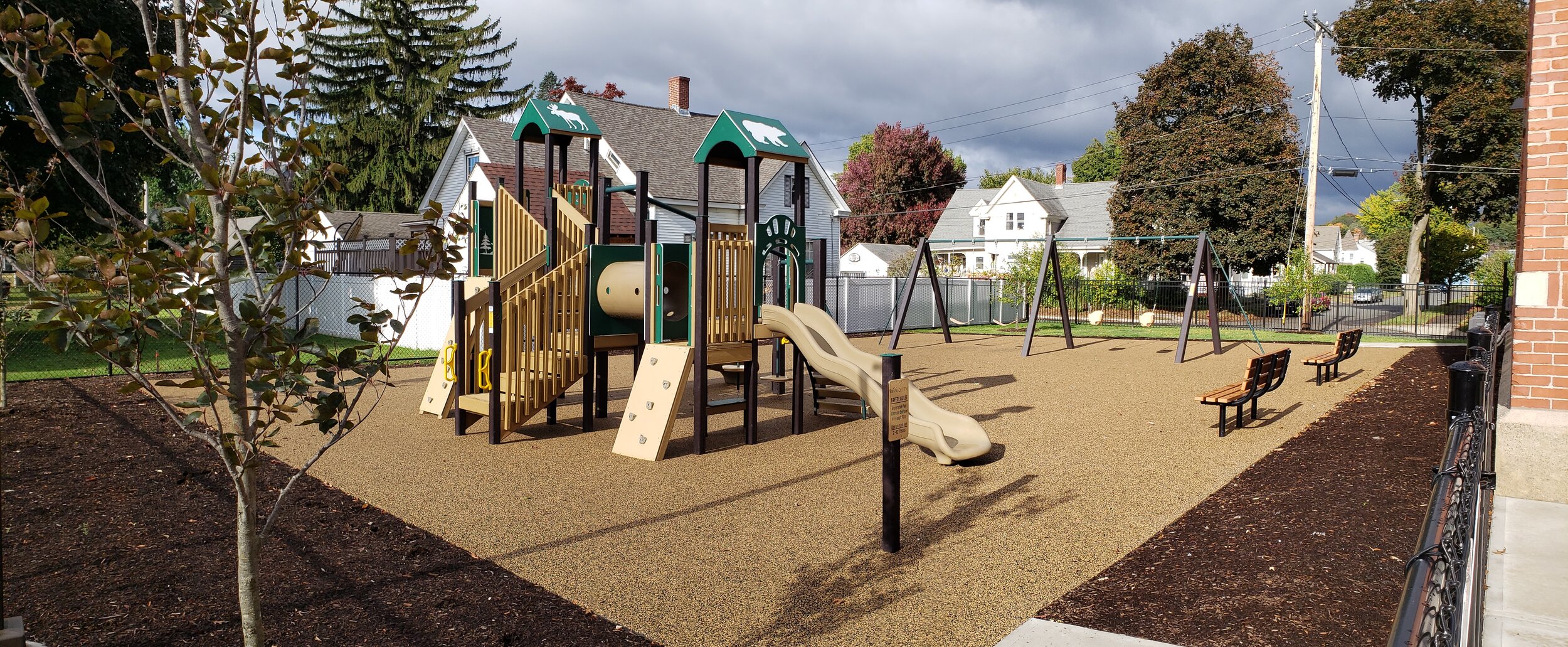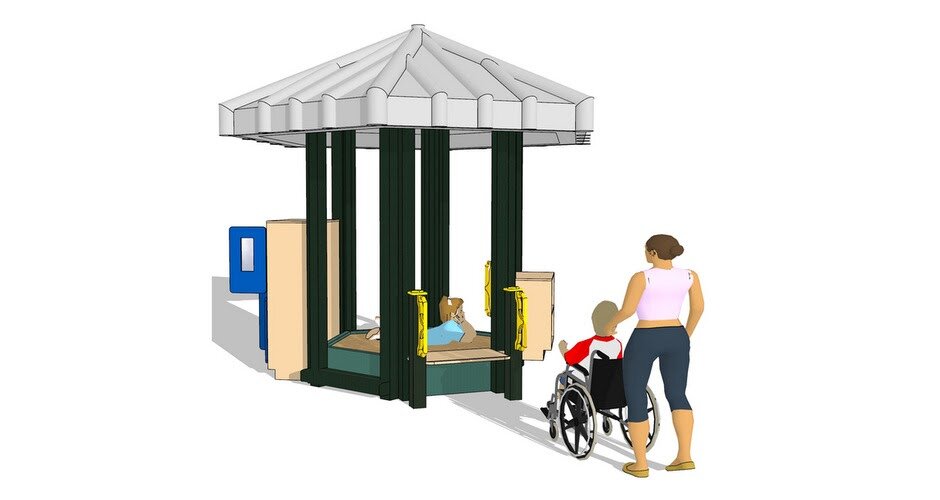Playground Safety is No Accident
Playground equipment does more than simply provide a structure for kids to jump, climb and slide on. Playgrounds offers a safe and cost-effective community gathering place, while providing the opportunity to practice and develop key social, emotional, cognitive, and physical life skills through the act of play. Playgrounds are an important and valued asset to communities which is why residents are trusting professionals to work with companies like Premier Park & Play, who have over 28 years of experience in the industry, thus ensuring that playgrounds are designed with safety for users in mind.
“The U. S. Consumer Product Safety Commission has long recognized the potential hazards that exist with the use of playground equipment, with over 200,000 estimated emergency room-treated injuries annually.” (CPSC.com) Even though all playground injuries are unable to be prevented, with proper design, inspection and supervision injuries can be reduced and the life of the equipment extended. Below is an overview of safety precautions which address the leading causes of accidents on playgrounds.
Starting at the beginning, design is the top aspect of playground safety. When working with a landscape architect or playground representative, it is important to layout the playground in a way that optimizes play and prioritizes safety. Those experienced in the industry, like Premier Park & Play, will ensure that playground designs take the below guidelines into consideration.
Accessibility
ADA Sand Kitchen - Nature of Early Play
Equipment selection, placement and protective surfacing are all key components to ensuring safe opportunities for individuals with disabilities in a playground setting.
Age Separation
Playground layout should promote the separation of age groups and feature age-appropriate equipment. Each piece of equipment caters to specific age developmental milestones and it can become dangerous when a child plays on equipment above or below their developmental level.
Layout and Activity Selection
The play space should be organized into different sections of active play vs. passive play to prevent injuries that could arise when running between activity centers. For instance, standalone musical equipment would be considered passive with a lower activity level compared to spinning equipment. Additionally, when laying out equipment be mindful of areas that are in direct sunlight. Equipment in direct sunlight for prolonged periods can be a burn hazard, especially for younger children. If sunlight cannot be avoided, consider selecting pieces that offer shade or adding a shade canopy to your design.
Signage and/or labeling
Facility managers should make sure that proper signage with the age appropriateness and intended use of the equipment is visible to all users.
Sight Lines
Even playgrounds designed with the utmost care and in accordance with safety guidelines can still present hazards to children. This is where guardian supervision is important. Playgrounds should be laid out to allow parents/supervisors to keep a watchful eye on children as they move throughout the playground environment. For example, equipment should be visible from benches, and separate age areas should be within eyesight of each other.
Surfacing
The surfacing under the playground equipment is one of the most important factors in reducing the likelihood of life-threatening injuries as surfacing is designed to absorb some of the shock of falls. There are various types of surfacing materials that meet the safety guidelines including bark mulch, playground wood chips, fine sand and gravel and pour-in place surfacing. No matter the material chosen, making sure the site has the proper depth of materials will ensure that users are being protected. Loose fill materials like bark mulch and gravel will compact and displace over time which could result in inadequate depth. Therefore, always add at least 25% more than is needed to avoid this problem. As regulations around playground safety increase some states like Massachusetts, have determined that pour-in place surfacing is the new minimum standard as that meets both safety and ADA requirements
Use a checklist to ensure all areas are inspected
Beyond design Premier Park & Play would like to recognize that there are two additional ways to ensure play spaces are safe — inspection and supervision. A comprehensive maintenance program should be developed for each playground. When looking over equipment and the surrounding area facility managers need to check for excessive wear, deterioration, and any potential hazards. Some hazards to be aware of include sharp objects on the equipment or in the surfacing (needles can be hidden in loose surfacing), loose railings (can lead to falls or head entrapment), or any improper equipment fixtures. Equipment with movable parts tend to need more maintenance than stationary equipment.
The use of a checklist is a good way to make sure all areas are inspected, and a written record is kept in the event of an incident. The best approach for inspection is a hands-on one; channel your inner child and climb on top of and under equipment to truly check the condition. Encourage playground users to notify the managing department if they notice something is amiss with the equipment.
Finally, proper supervision while the playground is in use is the best form of injury prevention. There are several things parents and playground supervisors can do to keep users safe:
Be aware that not all equipment is for all children and help to enforce posted safety signs.
Be mindful of the age of the children you are supervising; toddlers and preschool-aged children require more attentive supervision that older children.
Survey the area before play and report any potential dangers with the equipment and/or with the surfacing.
Make sure children are wearing proper clothing for play (no long strings, loose shoes, etc.).
Remember supervisors and parents can have fun on playgrounds too! “We don’t stop playing because we grow old. We grow old because we stop playing.” George Bernard Shaw.
Premier Park & Play strongly advocates for and designs safe play spaces recognizing that they are the result of careful planning, diligent monitoring, and responsible use. Together we can work to reduce the number of playground-related injuries, keeping these areas safe and fun for years to come.
This article was co-writtened by Doug Knotts and Emily Easterling, and published in MHEC Member Bulletin May 2021 issue.
Doug Knotts, President of Premier Park & Play represents leading manufacturers in the park and playground industry. Doug has been working with, municipalities, housing, childcare centers, and other valued clients for over 28 years and is a certified playground safety inspector (CPSI).
Emily Easterling, Certified Parks and Recreation Professional, former Director of Parks and Recreation, and current marketing and sales associate of Premier Park & Play.





